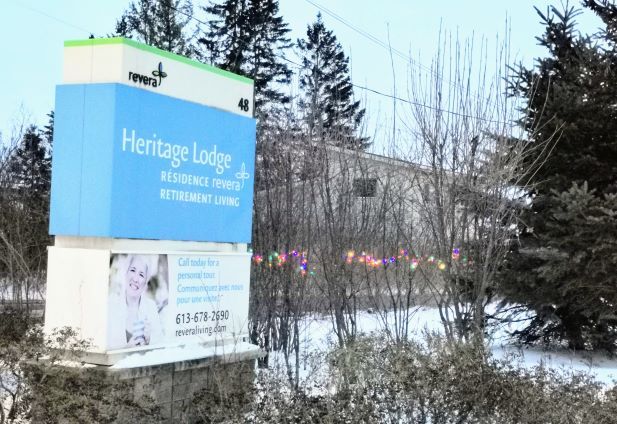According to the head of the Eastern Ontario Health Unit (EOHU), it cannot be confirmed or denied if employees of long-term care and retirement facilities who test positive for COVID-19 are being allowed to remain on the job.
“We have to look at the precautions,” Medical Officer of Health Dr. Paul Roumeliotis said on Friday, December 31.
He said allowing asymptomatic employees who test positive to remain working could be permitted if there are extreme shortages of staff. Roumeliotis said he was not aware if a nurse at Heritage Lodge in Vankleek Hill who tested positive for COVID-19 was allowed to keep working, nor was he aware of other similar examples across the region.
However, Roumeliotis said it is possible he may permit asymptomatic long-term care and retirement facility employees who test positive in the future to remain on the job.
“I’m not ruling it out.”
The Québec government recently announced it will allow asymptomatic health care workers who test positive for COVID-19 to continue working if circumstances warrant.
Relatives of some residents of Heritage Lodge contacted The Review, concerned that a nurse employed at Heritage Lodge was continuing to work, despite having tested positive for COVID-19.
The outbreak at Heritage Lodge retirement residence was declared after one resident, one staff member and one third-party care provider tested positive for COVID-19. Revera Living, which operates Heritage Lodge, has taken measures to address the outbreak.
“Residents are monitored for symptoms daily. All staff are screened at the beginning and end of their shifts and are required to always wear a surgical mask and eye protection in the residence,” said Dr. Rhonda Collins, Chief Medical Officer for Revera.
“Staff are performing enhanced cleaning, disinfecting high touch surfaces like handrails and doors, common areas and staff rooms frequently. To promote physical distancing, residents are being served meals in their rooms. Group recreation programming has been replaced by one-on-one activities with residents for social engagement.”
Residents, their families and the staff have been informed of the status of the outbreak. Residents at Heritage Lodge who have consented and are able to be vaccinated, have received their booster shot. All Revera staff members are fully vaccinated, and booster shots are underway.
As of Friday, December 31, in addition to the outbreak at Heritage Lodge, there were five other COVID-19 outbreaks in effect at long-term care and retirement facilities under EOHU jurisdiction. They are at Foyer St-Jacques Nursing Home in Embrun, Centre d’Acceuil Roger-Séguin in Clarence Creek, Foyer St-Viateur Nursing Home in Limoges, Heritage Heights in Cornwall, and Woodland Villa in Long Sault.
Roumeliotis said most long-term care and retirement facility outbreak cases are in employees and not residents.
The EOHU reported 1,588 active cases of COVID-19 across its territory on December 31. Six people are in hospital and one individual is in intensive care. The highest number of cases on December 31 were in Cornwall with 506 cases. South Stormont had 142 cases, and Clarence-Rockland had 132 cases. There were 123 active cases of COVID-19 in Hawkesbury on December 31, and 85 active cases were in Champlain Township.
Curfew concerns
Québec has reintroduced a temporary 10 p.m. to 5 a.m. curfew for all residents, effective December 31. Most retail businesses across Québec will also be closed on Sundays. The measures were announced on December 30 as a way of countering sharply increasing cases of COVID-19 across the province. Indoor dining at restaurants has also been temporarily prohibited. Roumeliotis said he is concerned about Québec residents coming to Ontario communities near the provincial boundary to shop and dine and how that could affect the spread of COVID-19.
“We’re going to keep an eye on that,” said Roumeliotis.
Vaccination very important
Roumeliotis emphasized on December 31 that vaccination is still effective against the omicron variant of COVID-19. Even if vaccination does not entirely prevent illness, it will prevent severe disease in 80 to 90 per cent of people. He said people who are not vaccinated are 20 to 40 times more likely to end up in intensive care if they are infected with COVID-19.
The EOHU is planning more vaccination clinics in January and Roumeliotis said the recent shortage of vaccine doses available at area pharmacies has been resolved.


